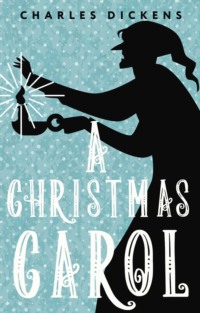
A Christmas Carol in Prose. Being a Ghost Story of Christmas / Рождественская песнь в прозе. Святочный рассказ с привидениями
To hear Scrooge expending all the earnestness of his nature on such subjects, in a most extraordinary voice between laughing and crying; and to see his heightened and excited face; would have been a surprise to his business friends in the city, indeed.
“There’s the Parrot!” cried Scrooge. “Green body and yellow tail, with a thing like a lettuce growing out of the top of his head; there he is! Poor Robin Crusoe, he called him, when he came home again after sailing round the island. ‘Poor Robin Crusoe, where have you been, Robin Crusoe?’ The man thought he was dreaming, but he wasn’t. It was the Parrot, you know. There goes Friday, running for his life to the little creek! Halloa! Hoop! Halloo!”
Конец ознакомительного фрагмента.
Текст предоставлен ООО «Литрес».
Прочитайте эту книгу целиком, купив полную легальную версию на Литрес.
Безопасно оплатить книгу можно банковской картой Visa, MasterCard, Maestro, со счета мобильного телефона, с платежного терминала, в салоне МТС или Связной, через PayPal, WebMoney, Яндекс.Деньги, QIWI Кошелек, бонусными картами или другим удобным Вам способом.
Вы ознакомились с фрагментом книги.
Для бесплатного чтения открыта только часть текста.
Приобретайте полный текст книги у нашего партнера:
Всего 10 форматов